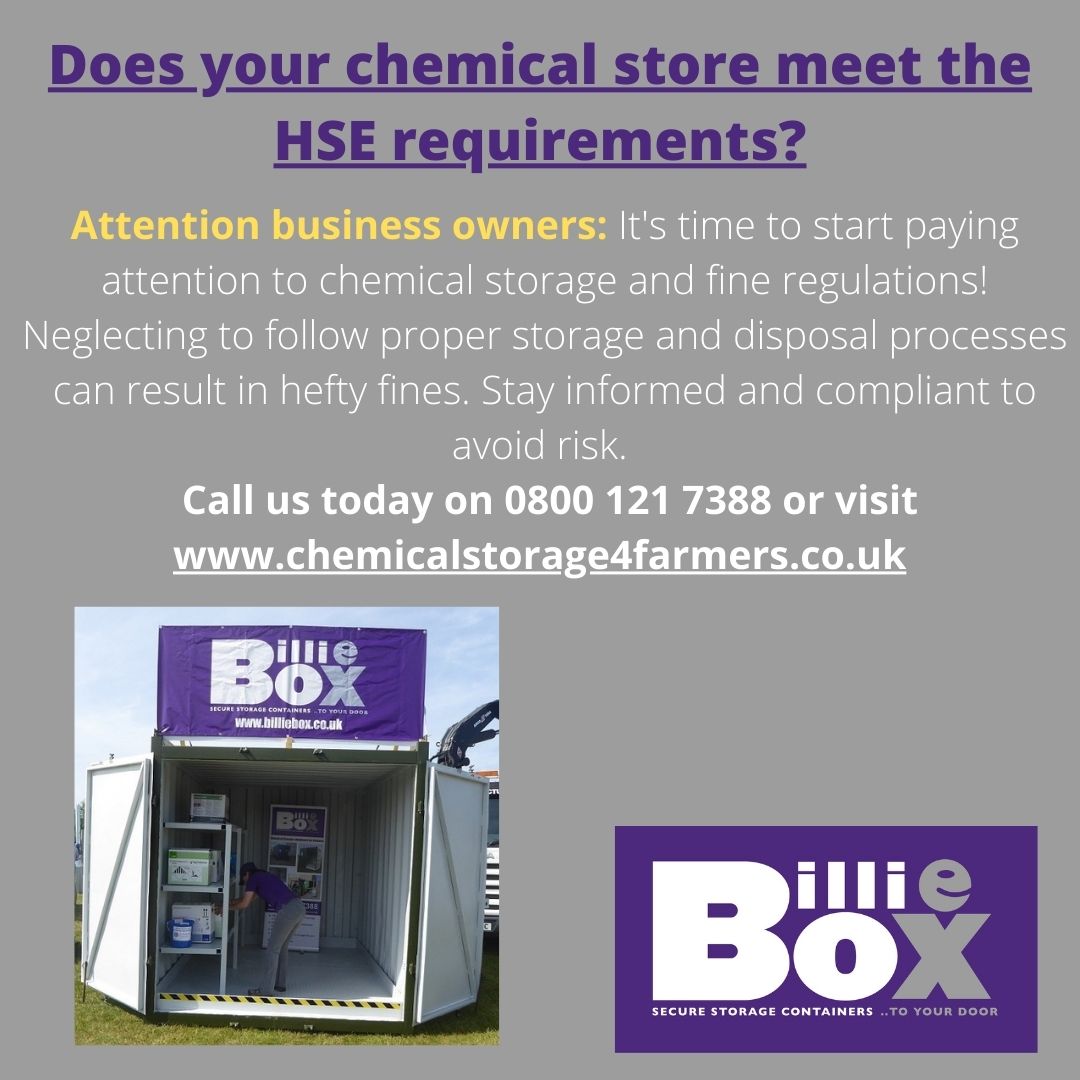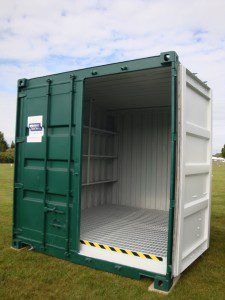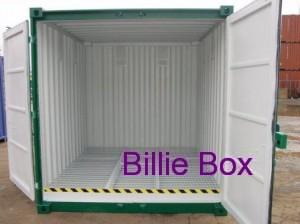Chemical Stores and Avoiding Fines: A Breakdown
Farmers with chemical stores beware because a bombshell is shaking up the world of Agrochemicals and it comes in the form of increased regulatory scrutiny. This double-edged sword is showing a pivot toward greater safety protocols and compliant storage solutions. On the one hand, this ensures greater safety for our beloved planet Earth and its greenery, but on the other hand, the threat of substantial fines is looming on the horizon.
Recently, several farms have been in the spotlight for fines imposed due to non-compliance with chemical storage regulations. In layman’s terms, they didn’t put their chemicals where they were supposed to go. These storage regulations can range anywhere from using proper containers to temperature to chemical compatibility. While these penalties may seem harsh, they were the wake-up call the agrochemical industry may have needed.
Regulatory compliance in the United Kingdom is governed by various laws, regulations, and standards meant to ensure the safety of agricultural products, protect human health, safeguard the environment, and maintain the integrity of the food supply chain.
What Does Regulatory Compliance in the United Kingdom Involve?
- Pesticide Regulation
Pesticides making their way into our fruits and vegetables can be disastrous, which is why the UK has the Health and Safety Executive (HSE) and the Department for Environment, Food & Rural Affairs (DEFRA). The HSE assesses the safety and efficacy of pesticides, while DEFRA is responsible for implementing and developing the appropriate policy. - Product Registration
Your pesticides and fertilisers share one thing with your car: they all need to be registered. For your agrochemicals, though, you don’t go to the DVLA, you go to the Chemicals Regulation Division (CRD) of the HSE. It’s a bit of a tricky process, though, because it involves submitting comprehensive data on product safety, efficacy, and environmental impact. - Biocide Regulation
Biocides are the weapons of mass destruction in the agrochemical world, including disinfectants and preservatives. Like any deadly weapon that can take out the most fearsome of bacteria, biocides are regulated under the Biocidal Products Regulation (BPR) in the UK. Before any biocidal product can make its way to the market, it has to get authorisation from the Health and Safety Executive (HSE). - Labelling and Packaging
Just like you can’t have a bottle of ketchup without Heinz on the label, you can’t have agrochemical products without the proper labelling. It doesn’t end there, though, because this label must comply with regulatory requirements and standards, meaning it has to provide users with clear, essential information on proper use, handling, storage, and disposal. - Environmental Protection
Mother nature is in pain and we have to do all we can to protect her, including minimising the environmental effects of agrochemicals. Pesticides are one of the major causes of pollution, so we have to keep a lookout. This is done through regulations on certain substances, guidelines for application practices, and requirements for environmental risk assessments. - Worker Safety
We must protect our planet, but employers also have to protect their greatest assets: the workers. There are several regulations related to worker health and safety including providing appropriate training and personal protective equipment (PPE) and ensuring safe handling and use of agrochemical products. - Quality Control
The way quality control makes sure everything is as it should be in other industrial sectors ensures the consistency, efficacy, and purity of agrochemical products. Quality control has procedures like Good Manufacturing Practice (GMP) guidelines and regular inspections by regulatory authorities. - Data Reporting and Monitoring
The agrochemical industry is a well-oiled machine due to submitting data on product safety, usage, and adverse effects to regulatory agencies for monitoring and evaluation purposes.
What Happens if I Don’t Comply with Regulatory Requirements?
Non-compliance with the UK’s regulatory requirements for the agrochemical industry makes you less of a cool outlaw, and more of a receiver of enforcement actions, including fines, product recalls, and restrictions on market access. This is why companies operating in this sector must prioritize compliance efforts to ensure the legality and safety of their products and operations.
There is an upside, however, because those who adapt quickly are poised to not only avoid fines but also enhance their reputation for safety and responsibility.
For more, call us on 0800 121 7388 or visit our Chemical Storage 4 Farmers website.










